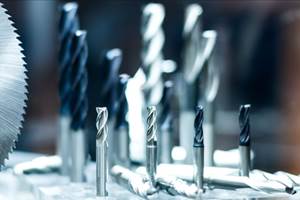How I Made It: Dennis Rymanowski
Dennis Rymanowski has worked at NSH USA for 60 years, with his passion for manufacturing living alongside his passion for his family’s polka band.
Share





When I started at Simmons, I wasn't sure if it was a summer job or it was a permanent gig. For the first part of my job, I was basically their clerk. It was actually a good learning tool because I would eventually have to use those files to fulfill the parts orders and inquiries. Eventually we had two part specialists that handled all the inquiries and processed any orders that came in, and they helped me learn that part of the job. I benefited from working with them because that time unlocked all the resources that I would need.
Some of the parts we needed came from designs that went back as far as 1898, so obviously some of the systems to find stuff were different then. So I would work with part specialists, and I would pull drawings, file the drawings, run the blueprints back. And as I was doing that, I was actually learning the parts business because I was exposed to the vernacular, the parts, the names and use of the items. I knew exactly what they were talking about when I discussed it with a customer, and I was fortunate to be mentored this way.
Once I moved on to the part specialist role, I learned costing and estimating. I took a mechanical drawing class and became a detailer for a Niles engineer. I stayed in engineering for a period of time, then came down to the parts office, entering orders and quoting. Eventually, I moved to sales. And the whole time I was in the band and doing the radio show.
Our polka band started in 1948 as the Rymanowski Brothers, with my dad and my uncle in the lead. We played Polish-style polka right up until 2019 when the jobs dried up. I started out playing clarinet, but when I left the Navy in 1968 I asked my dad how the band was doing. He said, “Actually, I just booked a job for New Year’s Eve, and we need a drummer. You’re it.” I didn’t know anything about drumming, so I went to a lot of shows and watched the drummers. There was a period of time when my uncle dropped out, so I moved to clarinet and sometimes saxophone.
I stayed with the band the whole time I was working in the industry. There were never really any conflicts because we did weekend gigs and private parties. Sometimes we would book work in the Catskills or weddings, but it never interfered with work.
The radio show with my brother began in the ‘70s at Siena College. Eventually, the various hosts moved on and we were recommended as possible replacements. Siena College approached us and in the spring of 1989 we took over the “polka slot” which became the Polka Spotlight aired on Sundays with the Rymanowski brothers.
The thing that people don't realize when you do a show like that is you have to have a library. You can't spin the same six LPs every week to fill the three-hour show. My brother was always collecting records, so he had probably upwards of 1,400 polka albums. Now, we’ve been doing that 35 years straight, every Sunday from 9:00 to noon on WVCR.
I don’t know how much longer we’ll keep doing it, but whatever happens we’ll continue on as the Rymanowski brothers always have.
Related Content
Inside Machineosaurus: Unique Job Shop with Dinosaur-Named CNC Machines, Four-Day Workweek & High-Precision Machining
Take a tour of Machineosaurus, a Massachusetts machine shop where every CNC machine is named after a dinosaur!
Read MoreHow I Made It: Amy Skrzypczak, CNC Machinist, Westminster Tool
At just 28 years old, Amy Skrzypczak is already logging her ninth year as a CNC machinist. While during high school Skrzypczak may not have guessed that she’d soon be running an electrical discharge machining (EDM) department, after attending her local community college she found a home among the “misfits” at Westminster Tool. Today, she oversees the company’s wire EDM operations and feels grateful to have avoided more well-worn career paths.
Read MoreAddressing the Manufacturing Labor Shortage Needs to Start Here
Student-run businesses focused on technical training for the trades are taking root across the U.S. Can we — should we — leverage their regional successes into a nationwide platform?
Read MoreManufacturing Technology and Training in Europe
NTMA’s European Tech Tour exposed attendees to the latest technology and traditional training methods used by European manufacturers.
Read MoreRead Next
Last Chance! 2025 Top Shops Benchmarking Survey Still Open Through April 30
Don’t miss out! 91ÊÓƵÍøÕ¾ÎÛ's Top Shops Benchmarking Survey is still open — but not for long. This is your last chance to a receive free, customized benchmarking report that includes actionable feedback across several shopfloor and business metrics.
Read MoreAMRs Are Moving Into Manufacturing: Considerations for Implementation
AMRs can provide a flexible, easy-to-use automation platform so long as manufacturers choose a suitable task and prepare their facilities.
Read MoreMachine Shop MBA
Making Chips and 91ÊÓƵÍøÕ¾ÎÛ are teaming up for a new podcast series called Machine Shop MBA—designed to help manufacturers measure their success against the industry’s best. Through the lens of the Top Shops benchmarking program, the series explores the KPIs that set high-performing shops apart, from machine utilization and first-pass yield to employee engagement and revenue per employee.
Read More























